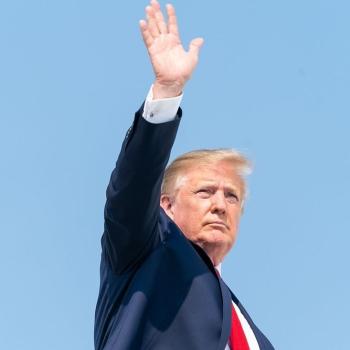A fascinating controversy has erupted between the worlds of modern rap music and the early American Puritans, because of a song, “Precious Puritans,” by Christian rapper Propaganda.
For brevity’s sake, I won’t explore all the commentaries on the controversy, but to catch the flow of it, pastor and blogger Joe Thorn discusses the song here with Propaganda, and Boyce College professor (and rapper) Owen Strachan takes exception to the song’s lack of nuance here. (More links below.)
The song laments the Puritans’ popularity among Reformed pastors. Among its lyrics are
You know they were the chaplains on slaves ships, right?
Would you quote Columbus to Cherokees?
Would you quote Cortez to Aztecs?
Even If they theology was good?
It just sings of your blind privilege wouldn’t you agree?
Your precious puritans.
As Propaganda reminded Joe Thorn, the song ends by criticizing the elevation of any fallen human to pristine heroic status — even Propaganda himself.
And, it bothers me when you quote puritans, if I’m honest, for the same reason it bothers me when people quote me–they precious propaganda.
So, I guess it’s true.
God really does use crooked sticks to make straight lines.
Just like your precious puritans.
Leaders such as John Piper, and others whom Collin Hansen has called the “Young, Restless, and Reformed,” have brought renewed attention to the Puritans, and to Reformed evangelical luminaries such as Jonathan Edwards and George Whitefield (who is the subject of my latest book project). The sermons and writings of these historic ministers reveal to us an age of extraordinary theological depth and gospel-driven preaching.
But, as Propaganda pointedly notes, and as books such as Richard Bailey’s Race and Redemption in Puritan New England remind us [my review of Bailey is here], many of these Puritans and evangelicals were at least indirectly complicit in slave owning and the slave trade. Edwards and Whitefield both owned slaves, and Whitefield pushed for slavery’s introduction into early colonial Georgia, which had initially banned the institution.
What should Christians do with these heroes of the faith, whose indulgence of slavery seems like such a staggering moral failure? (I asked a similar question about the Founding Fathers in “Slavery: America’s Original Sin?”)
Here’s a few guidelines to think about our historic heroes and slavery:
-Reformed Christians, of all people, will understand that we are all sinners, and that sin imparts a disappointingly narrow vision about our own failings. It is very difficult for people morally to think “outside the box,” even with regard to barbarous practices such as the Atlantic slave trade and slave owning. We should all humbly realize, when criticizing slave owners, that if we were born into a white slave owning family in colonial or antebellum America, we almost certainly would have died as a slaveholder, too. There were exceptional slave holders who “saw the light,” sometimes via Christian conversion (a la John Newton), but not as many as we would like, especially in the American South.
-We do no service to forefathers such as Edwards or Whitefield — or, in a different strain, George Washington or Patrick Henry — by downplaying their complicity in this ugly, brutal institution. History that hides or explains away issues such as slavery can be misleading and dishonest. It can open fresh wounds for those whose ancestors were enslaved.
-We should recognize our very human need for heroes, exemplars of virtue and piety whom we can seek to imitate. The Puritans, and the leading preachers of the Great Awakening, can help put the riches of the Reformed and evangelical tradition in stark relief against the shallowness that all too often marks today’s pop Christian culture. Yet we should never expect perfection from those heroes: we find phenomenal strengths in some areas, and disturbing blind spots in others. Realistic, flawed heroes are, in a sense, more edifying anyway: if God used “crooked sticks” in the past, then perhaps he can use me, too.
-American Christians should broaden their list of heroes, not only for historical breadth, but in this case to celebrate those Christians who resisted and spoke out against slavery. For evangelicals, two obvious choices are Lemuel Haynes and David George.
Even the Bible tells of no mere human perfect heroes. David, Peter, and Paul are excellent examples of godly men who committed terrible sins. The Christian faith has only one perfect hero. He is our proper object, not just of emulation, but of worship. We all fall far, far short of his example.
Other links on the debate over ‘Precious Puritans’:
Thabiti Anyabwile, “The Puritans are Not that Precious”
Anthony Bradley, “Puritans and Propaganda”
Nathan Finn, “Orthodoxy, Orthopraxy, and Puritan Slavery”
Mike Leake, “One Thing that Disturbs Me about Propaganda’s Song ‘Precious Puritans'”
Steve McCoy, “Missing the Point of ‘Precious Puritans'”
Tony Reinke’s response to Owen Strachan’s post












